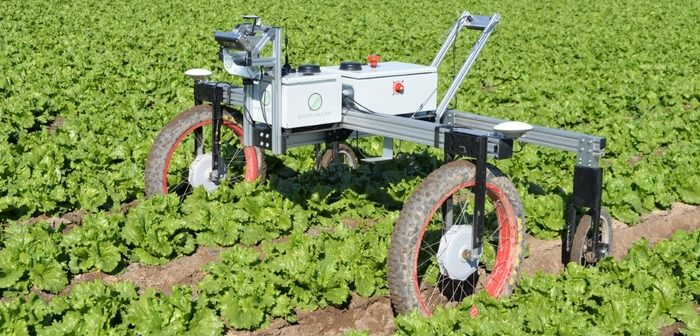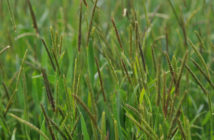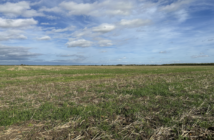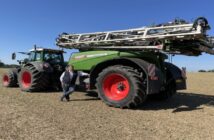The LightWeeder is a world-first eye-safe, herbicide-free, carbon neutral, commercially viable weeding system delivered by lightweight autonomous field robots via UK agri-robotics company and Agri-EPI Centre member, Earth Rover.
The LightWeeding technology uses semiconductor LEDs to solve key technical, safety and commercialisation challenges faced by laser-based weeding systems.
The LightWeeder is part of CLAWS (Concentrated Light Autonomous Weeding and Scouting), Earth Rover’s agri robot that can kill weeds using a unique concentrated light method, and can also scout fields to obtain a complete data map of all crops after planting, showing the crops exact location, size, and any early signs of disease.
The main features of CLAWS are:
- Weeding – chemical free and inherently safer than laser weeding. No till and no crop damage and can be used in any conditions without compacting the soil.
- Scouting – In depth analysis of crops to allow better harvest predictions and increased yields
The complete system is ultra-lightweight (only 300kg) meaning it requires low amounts of energy to run, and is cheaper and more environmentally friendly than many of its competitors. It runs on batteries and (eventually) solar panels therefore uses no fossil fuels and helps farmers meet their net zero targets.
With increasing types of chemical-resistant weeds, a significant downturn in availability of hand labour plus a shift in society towards more organic options, now more than ever there is a need to change the way we farm. A recent report by Rothamsted Research shows weeds “pose an unprecedented threat to our food security” and highlights the need to diversify weed control as an urgent priority.
John Taylor, farm director at Pollybell Organic Farm says: “The key element here is that the LightWeeder not only makes chemical free farming more effective but it also solves the huge issue farmers are facing today in terms of the huge loss in labour force. Being able to weed fields autonomously means that food production doesn’t just grind to a halt.”
Lightweeding has several advantages over mechanical systems: it is energy-efficient and no-till, it does not damage drip irrigation or crops, it is not dependent on soil conditions, and it does not enable weeds to develop resistance. However, effective lightweeding must be low-cost, fast, and offer safe autonomous operation in modern farm environments – criteria that does not exist in-the market at this time.




